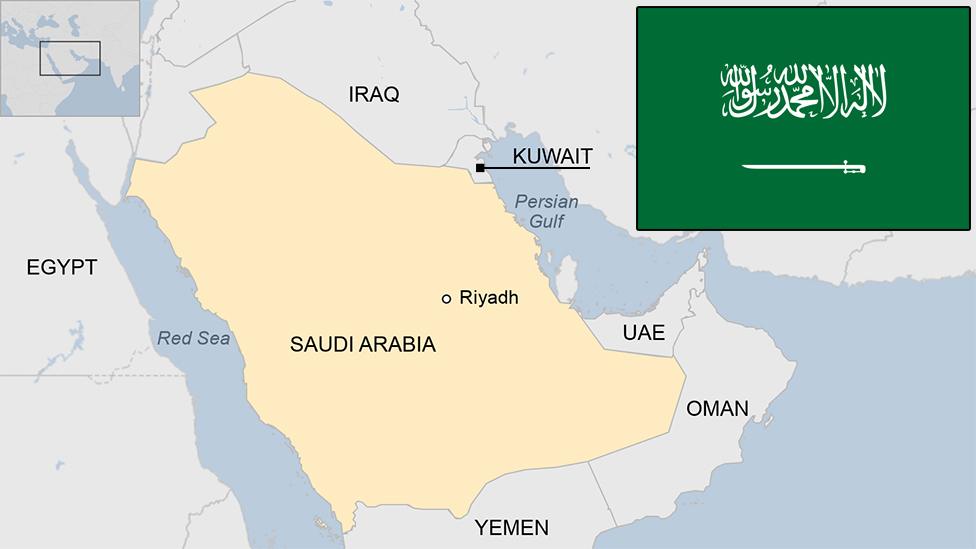Saudi Arabia: Funeral held for Crown Prince Sultan
- Published
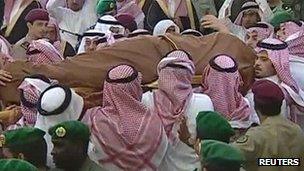
The body was carried through the mourners for prayers before burial
Dignitaries from around the world have gathered in the Saudi capital Riyadh for the funeral of Crown Prince Sultan bin Abdulaziz al Saud.
They were among hundreds of mourners - including King Abdullah - for the ceremony in Riyadh's sprawling Imam Turki bin Abdullah mosque.
Prince Sultan, who was heir to the throne, died on Saturday in a New York hospital.
He was in his eighties and was diagnosed with colon cancer in 2004.
The crown prince - who was also minister of defence and aviation - had been on a visit to the US for medical tests, and had an operation in New York in July.
His body - flown back on Monday - was wrapped in brown cloth and carried through the throng of mourners for funeral prayers before being taken for burial at a nearby cemetery.
King Abdullah, 87, wore a surgical mask and remained seated during the ceremony. He is reportedly recovering from his third operation in less than a year to treat back problems.
Among 100 dignitaries in the mosque were the president of Afghanistan, the vice-president of Syria, the Iranian foreign minister and the head of Egypt's ruling military council, Reuters news agency reports.
Successor question
Crown Prince Sultan was a member of the most powerful family group in Saudi Arabia, the Sudairi Seven, and one of the sons of the country's founder, King Abdulaziz, known as Ibn Saud.
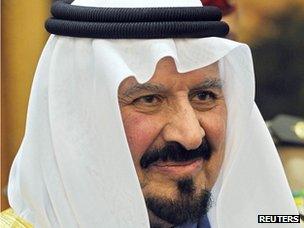
While defence minister, Crown Prince Sultan modernised the country's armed forces
The Sudairi Seven are the sons of Ibn Saud's most influential wife, Hassa bint Ahmad al-Sudairi.
The oldest of the seven was King Fahd, who died in 2005 - to be succeeded by a half-brother, the current King Abdullah.
As defence minister, Crown Prince Sultan oversaw extraordinary expenditure on modernising the armed forces, as multi-billion dollar deals made Saudi Arabia one of the world's biggest arms spenders.
He was also one of the strongest supporters of forging close ties with the US - links which came under strain after 9/11.
A new heir to the throne has not yet been announced, but observers believe it will most likely be Prince Nayef, 78, a full brother of the crown prince.
He has been the interior minister, in charge of the security forces, since 1975. In contrast to King Abdullah, who is seen as a cautious reformer, Prince Nayef is believed to be closer to conservative Wahhabi clerics.
But Prince Nayef is reportedly not in the best of health.
Concern has been growing for years over how smoothly Saudi Arabia will be able to replace this generation of leaders when it dies out, the BBC's Middle East analyst Sebastian Usher says.
The shockwaves of the Arab Spring have complicated this further, raising new challenges to the credibility and legitimacy of all the Arab world's accustomed leaders, our correspondent adds.
- Published22 October 2011
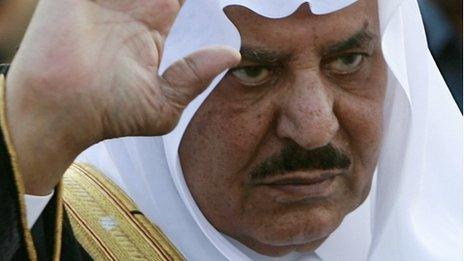
- Published22 October 2011
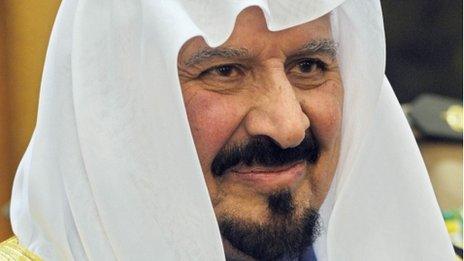
- Published22 October 2011

- Published4 October 2011
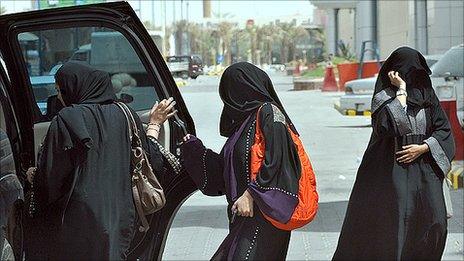
- Published22 November 2010
- Published29 August 2023
